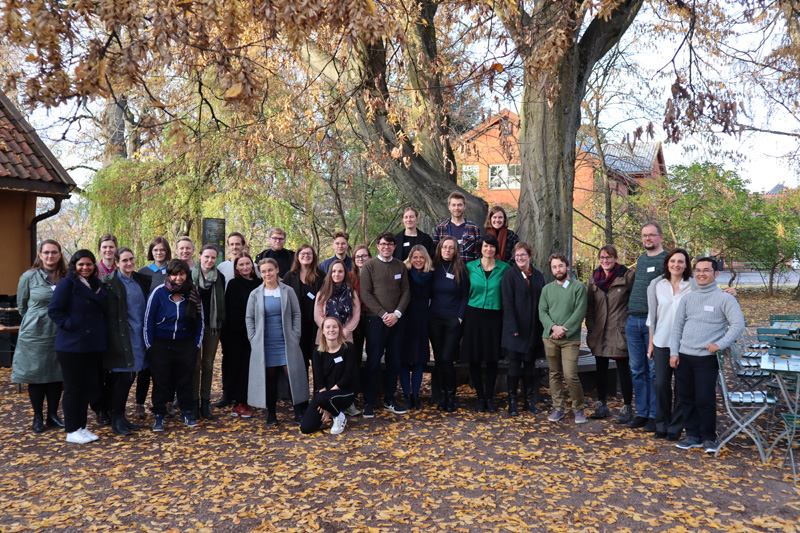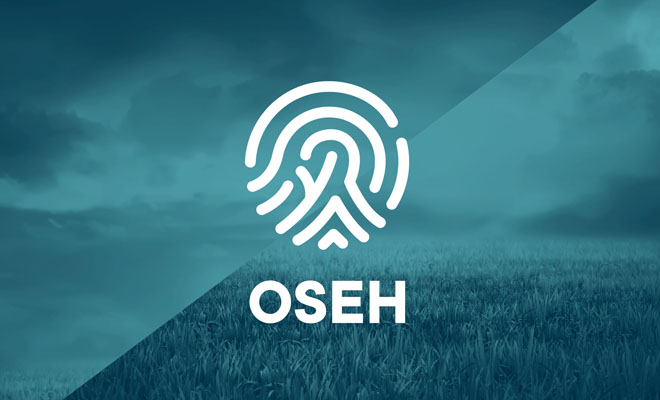Events
Throughout our first year, we have aimed at engaging with a great diversity of environmental topics, experimenting with various formats, while also establishing some core events.
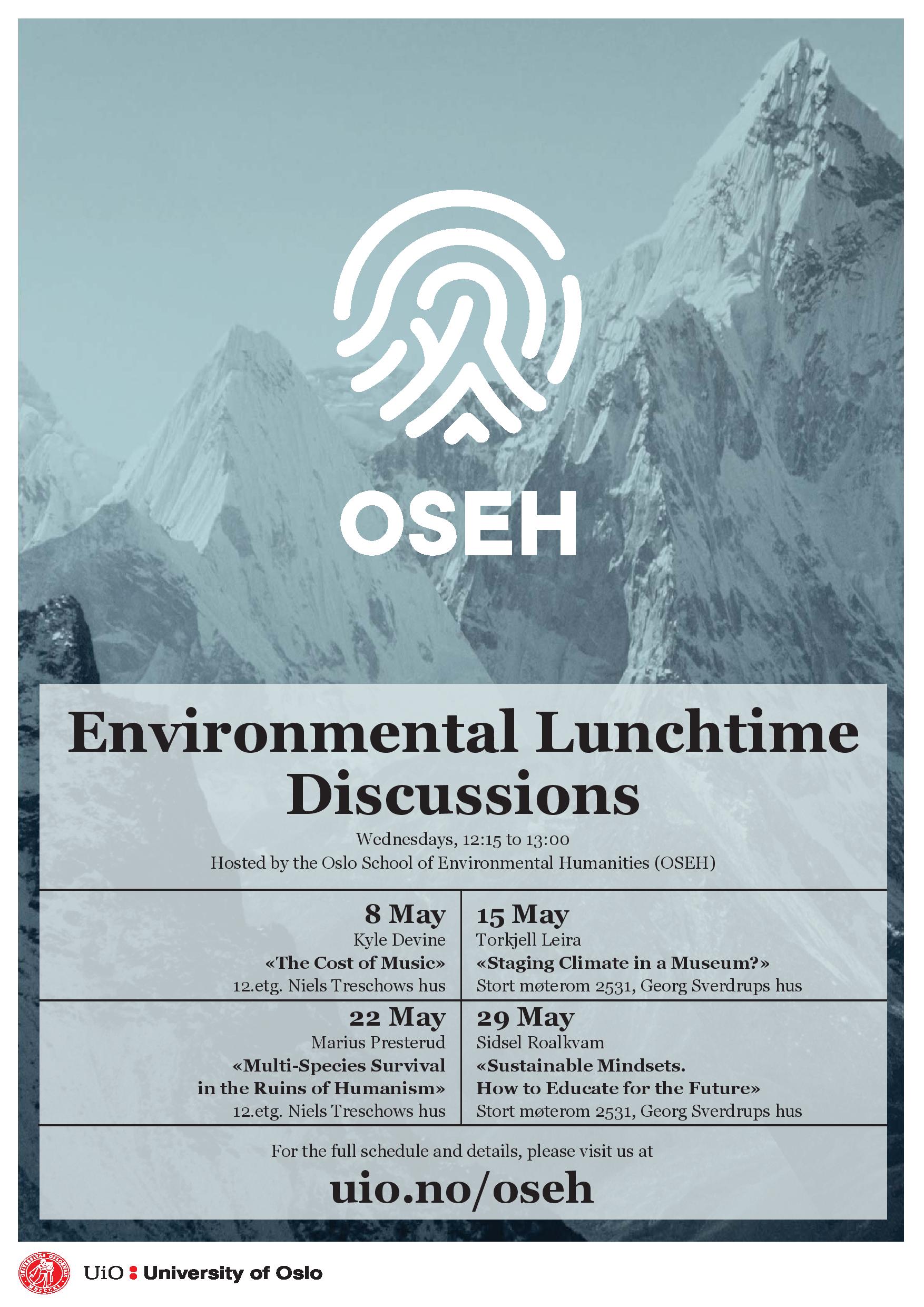 OSEH has established a weekly series of public events, the Environmental Lunchtime Discussions (ELD). Every Wednesday during the semester, we invite internal UiO speakers or external guests - academics, environmental artists, practitioners or activists - to give short presentations of their work, followed by an open discussion. The events are moderated by members of the OSEH Working Group and are open to everyone. The ELDs started on 27 March 2019, with Ursula Münster, Director of OSEH, presenting the plans and visions for OSEH in 2019 and beyond. In total, OSEH arranged 24 discussions on a wide variety of topics in 2019, from contestations over windpower in Norway to the environmental activism of Extinction Rebellion. Everyone is welcome, please join us in the future!
OSEH has established a weekly series of public events, the Environmental Lunchtime Discussions (ELD). Every Wednesday during the semester, we invite internal UiO speakers or external guests - academics, environmental artists, practitioners or activists - to give short presentations of their work, followed by an open discussion. The events are moderated by members of the OSEH Working Group and are open to everyone. The ELDs started on 27 March 2019, with Ursula Münster, Director of OSEH, presenting the plans and visions for OSEH in 2019 and beyond. In total, OSEH arranged 24 discussions on a wide variety of topics in 2019, from contestations over windpower in Norway to the environmental activism of Extinction Rebellion. Everyone is welcome, please join us in the future!
In fall 2019, OSEH launched the Environmental Humanities Lecture Series (EHL), inviting leading scholars in the field of Environmental Humanities to present their current research, with opening lectures by Hanna Musiol (NTNU Trondheim) and Marco Armiero (KTH Stockholm).
On 2-3 May 2019, OSEH hosted the interdisciplinary workshop Arts of Coexistence: Care and Survival in the Sixth Extinction in collaboration with the working group Humans and Other Living Beings (HOLB) of the European Association of Social Anthropologists (EASA), at Tøyen Hovedgård in Oslo. The workshop was organized by Ursula Münster, Sara Asu Schroer and Hugo Reinert and had 28 international participants, 41 attending in total.
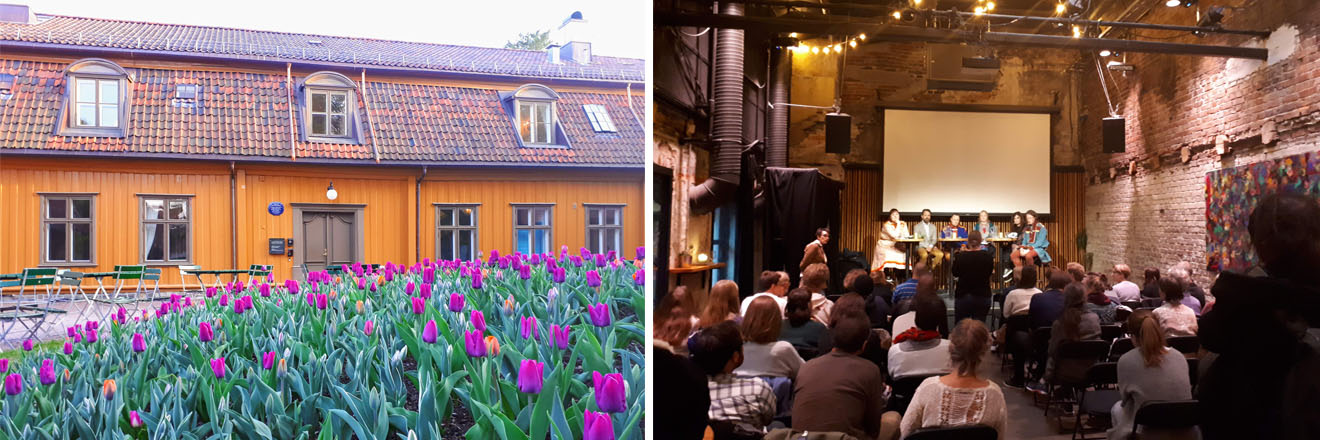
In August 2019, OSEH engaged in two important public events, held annually in Norway. Sissel Furuseth hosted a panel discussion on Climate Fears and Climate strikes at Arendalsuka, a national annual event encouraging political participation and civic engagement in Norway. With approximately 85 attendants, the discussion was the second best attended UiO event at Arendalsuka this year. In September, OSEH was present with a tent at Forskningstorget (Research Bazaar) in collaboration with students and staff from archaeology at IAKH. Organized by Per Ditlef Fredriksen, Dominik Collet and Vibeke Viestad, the event was targeted towards the general public and aimed specifically at engaging school children. As a part of Forskningsdagene 2019, Hugo Reinert organized a panel on Indigenous people and Environmental Justice in collaboration with the Centre for Development and the Environment (SUM).
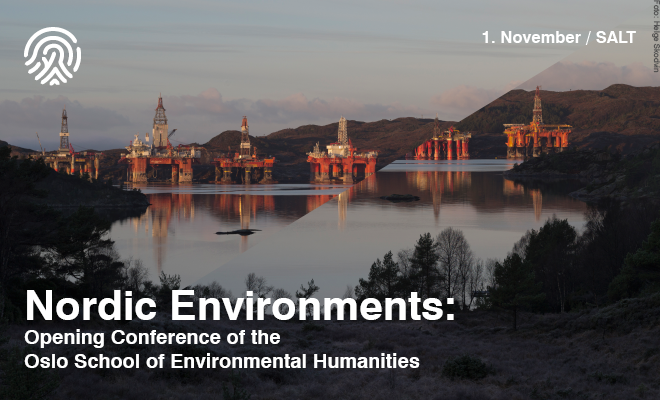
Towards the end of 2019, on 1 November, the OSEH held its opening conference Nordic Environments at SALT, a nomadic art location at Oslo's harbor. The event was open to the public and brought together a diversity of environmental thinkers and practitioners including academics, artists, musicians, politicians and activists. Organized by UiO's Ursula Münster, Hugo Reinert and Kjetil Fallan, around 150 people participated in different parts of the program, with a keynote lecture by Heather Swanson (Aarhus University) and a panel discussion with Marco Armiero (KTH), Dolly Jorgensen (UiS), Britt Kramvig (UiT) and Julia Leyda (NTNU). The opening conference concluded a memorable first year for OSEH, and a motivating springboard for further collaborative work and activities.
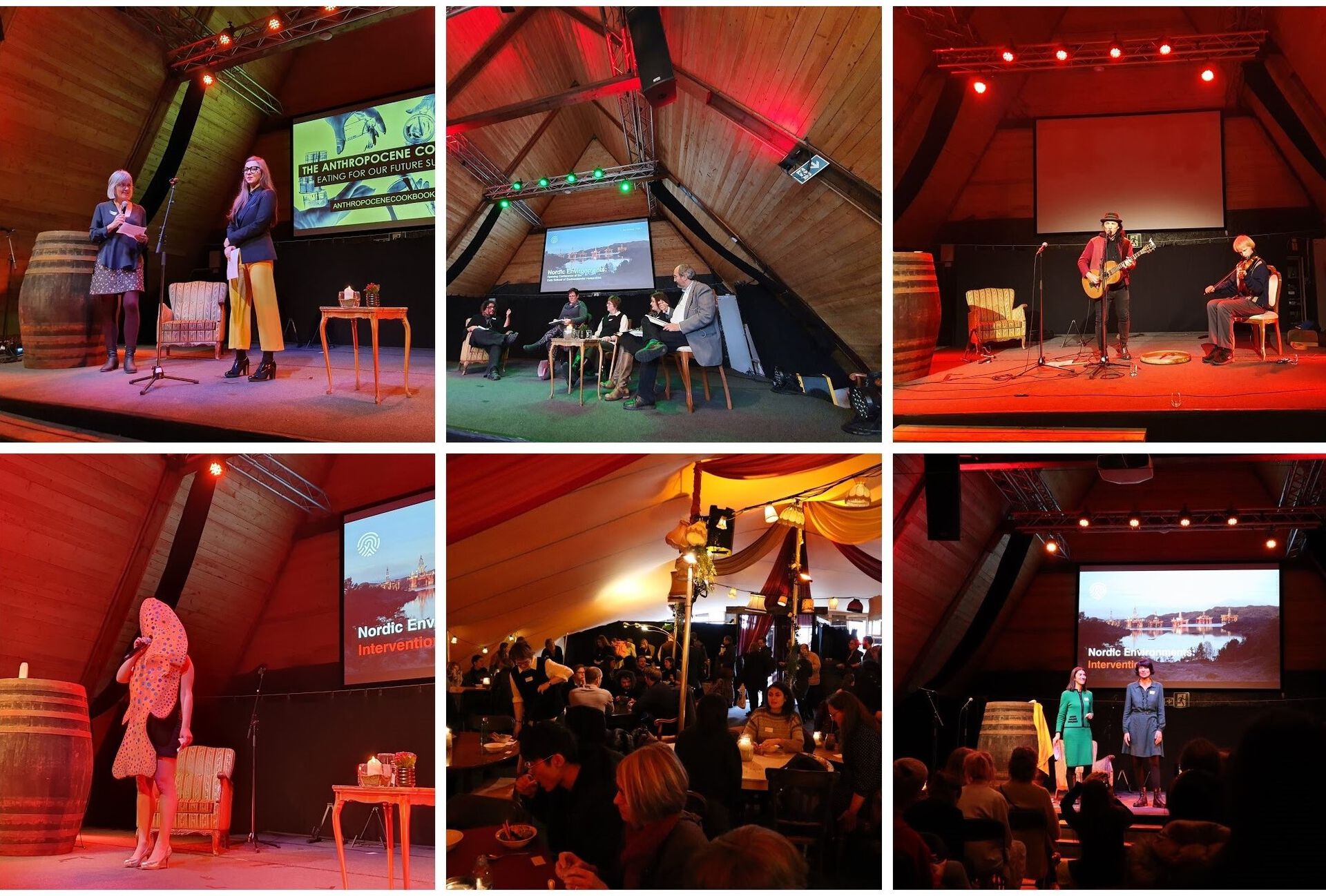
Research
OSEH grants seed funding by supporting Collaboratories - interdisciplinary research groups that work together to ask new research questions and developing new approaches for studying the Anthropocene. Applications for new collaboratories are open twice a year. All applications were assessed by a committee consisting of the Heads of Research at the three participating departments IFIKK, IAKH and IKOS, in collaboration with members of the OSEH Working Group. Three collaboratories were granted funding in 2019:
- Curating Climate, led by Dominik Collet (IAKH) and Brita Brenna (IKOS)
- Anthropogenic Soils, led by Ursula Münster (IKOS) and Daniel Münster (HELSAM)
- Bionic Natures, led by Hugo Reinert (IKOS) and Rachel Douglas-Jones (ITU Copenhagen)
In addition to the collaboratories, OSEH granted partial funding for the following events in 2019: On its 60th birthday, is the Antarctic Treaty in good health?, Environmental and Climate History: The Role of History in Society, General Ecology. Rethinking the Humanities in the Digital Era.
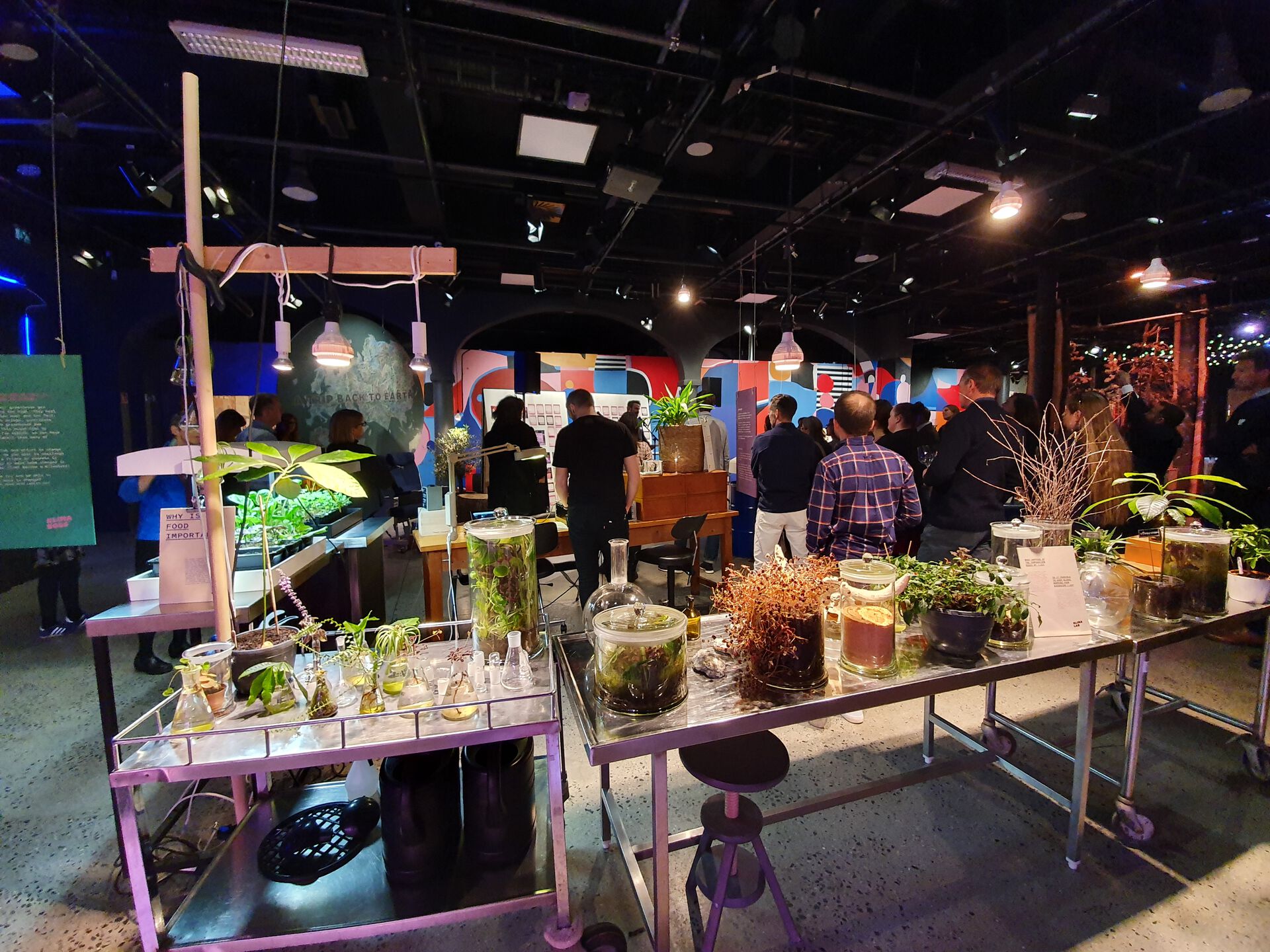
Teaching
OSEH is part of the newly established Norwegian Researcher School in Environmental Humanities (NoRS-EH) in collaboration with University of Stavanger, Centre for Development and the Environment (SUM) at UiO, the University of Bergen, Norwegian University of Science and Technology (NTNU) Trondheim and University of Agder. The researcher school was granted funding from the Research Council of Norway. OSEH will be the main organizer for several of the planned courses during the next two years, whereas the first of these was the PhD Research Seminar Theories and Methods in Environmental Humanities held 30 October - 1 November 2019. For the seminar OSEH received more than 40 applications, and selected 24 participants across different countries and disciplines.
